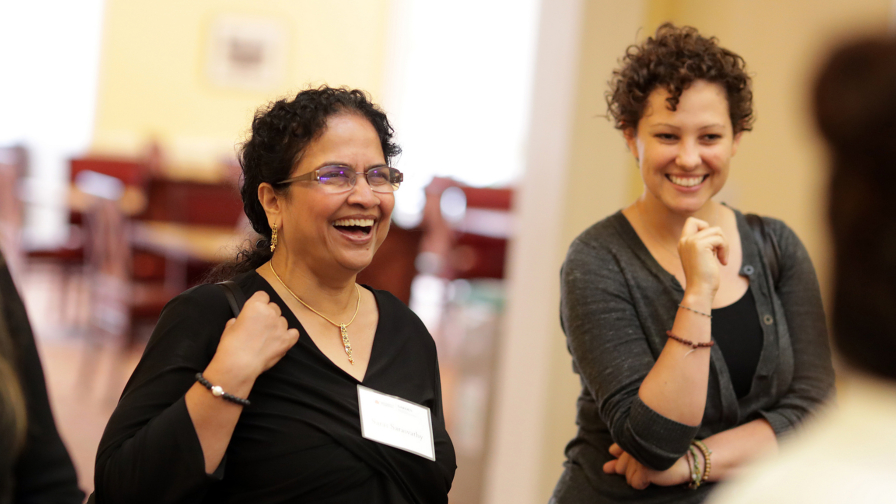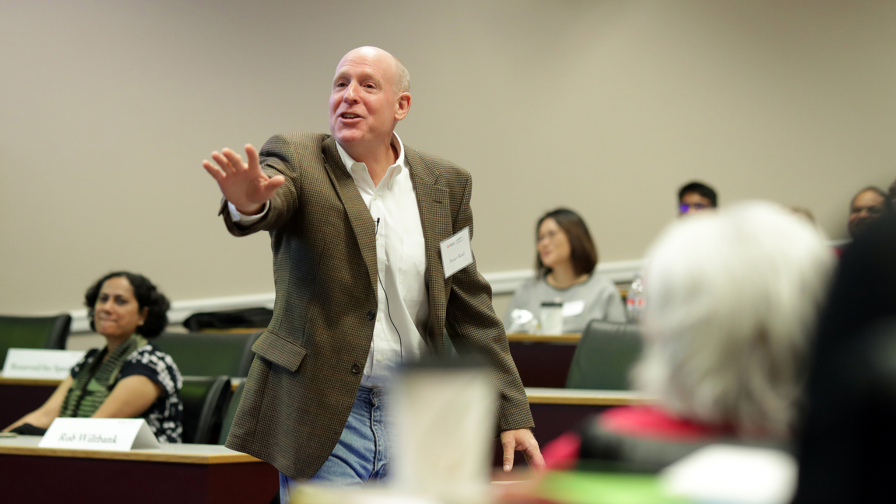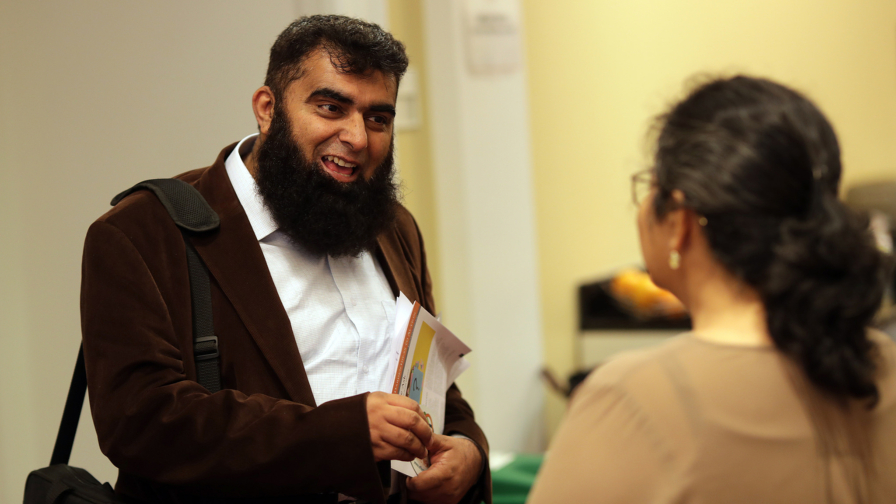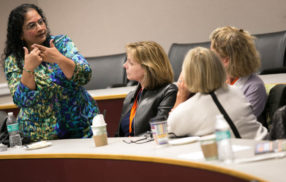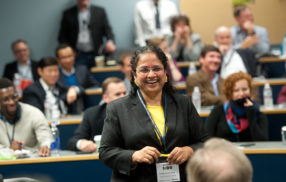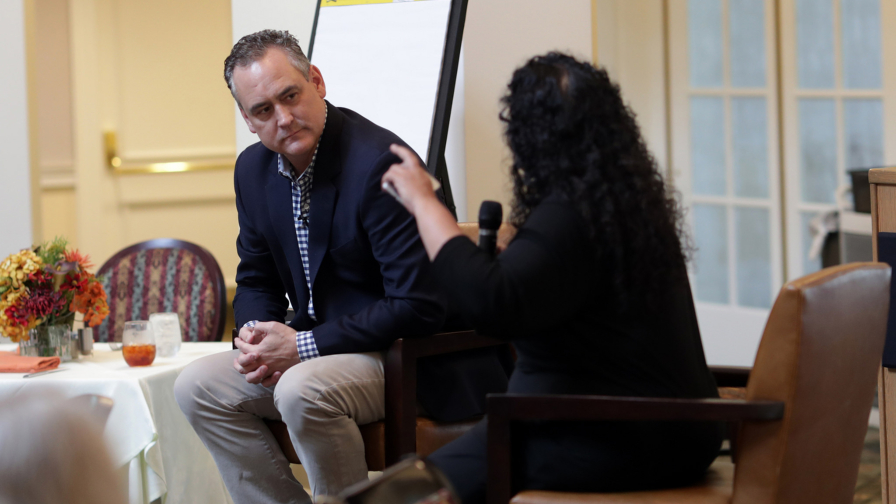
Keeping the Entrepreneurial Spirit Alive: LendingTree CEO’s Keynote Highlights Effectuation Conference at UVA Darden
By Dave Hendrick
Effectuation, the influential and accessible framework for entrepreneurial action, is a breakout star in the world of academic research.
The concepts, which successfully demonstrate entrepreneurial thinking in a teachable and learnable format, were first introduced by University of Virginia Darden School of Business Professor Saras Sarasvathy in 2001, the result of research into how expert entrepreneurs think.
In the ensuing years, the ideas took hold inside and out of higher education, influencing hundreds of academics and countless entrepreneurs around the globe. Many of those thinkers and doers came to the Darden School in early June for the 2018 Effectuation Conference, a three-day event sponsored by the Batten Institute for Entrepreneurship and Innovation offering a deep dive into the current state of effectuation and its many applications.
The conference came as the momentum around the concepts appears to be accelerating. Sarasvathy’s original 2001 paper earned the Academy of Management’s Foundational Paper Award in 2017 for its lasting contribution to the field of entrepreneurship, and one sign of influence is the sheer number of research papers devoted to the field. According to Willamette University Atkinson Graduate School of Management Professor Stuart Read, from the lone paper in 2001, there were a modest 42 in 2014, then 106 in 2015 and an explosion to 755 papers by 2016.
Other measures in the academic world also demonstrate effectuation’s staying power, from the multiple translations of the foundational textbook on effectuation to the 1,500 entrepreneurship professors registered at effectuation.org. At the 2018 conference, attendees came from 21 countries on six continents and presented 35 papers.
“Effectuation has gotten real,” Read said.
Keynoting the conference, LendingTree founder and CEO Doug Lebda (EMBA ’14) engaged in a discussion with Sarasvathy, detailing his entrepreneurial journey before, during and after Darden, and explaining how he seeks to keep an entrepreneurial spirit alive at a large publicly traded company.
Lebda ascribed his entrepreneurial streak to parents who insisted he earn his own money in his youth. While that prompted pool cleaning gigs and collecting golf balls for resale, his billion-dollar idea came about when trying to secure a mortgage for a $55,000 condominium shortly after graduating from college. Frustrated by the opaque and halting process in trying to obtain a loan, Lebda resolved that there should be a transparent market for money, not unlike the derivatives markets he was seeing in his work with a natural gas company.
Lebda formulated a rough business plan and said he began cold-calling banks, saying: “Will you join this network of lenders? We’re going to put you in competition with your biggest competitors. Trust me, you’ll love it.”
After six months with no sales, Lebda headed to Darden, learning what he could, interviewing for internships and refining his business plan in the library in his spare time.
When Lebda came in second place in a Darden business plan competition, he decided a year away from school to try to make his plan a reality would constitute an affordable loss.
Having struck out signing up banks for his venture the first time, Lebda’s second attempt included consumer market research derived from $500 he spent on mortgage ads on the Yahoo! platform. Armed with demonstrable evidence of customer interest, Lebda secured the participation of a bank in Pittsburgh and then Cleveland and eventually additional mortgage entrepreneurs who were also considering ways to disrupt the industry.
In the ensuing 20-plus years, Lebda led the company through an IPO, the dot-com crash, a sale to IAC — where he served as president and COO — and eventually took the reins of his company once again after IAC spun it off.
“We’ve been through small and big and corporate,” said Lebda, who returned to Darden to complete his MBA in the executive format in 2014. “For me, it’s a lot of fun. Now, I see it all as opportunities.”
Lebda said he came back to LendingTree because he thought the “mission wasn’t done.” While the company has seen enormous growth in recent years and pivoted into product lines such as credit cards, home equity loans and banking products, the goal of total simplicity and transparency for consumers remains unfulfilled.
“One thing I love to do is design products around people,” Lebda said. “We look for the intersection of where we help the customer, lender and LendingTree, and we usually find it by sitting down with customers and working with them.”
Lebda said he encouraged his staff to consider how to design a loan program aimed at an employee at his golf club who had a steady job but a poor credit score and derived much of his income in cash, for instance.
Designing for the actual needs and circumstances of the customer helped grow a service line serving subprime borrowers into a highly successful unit of the company, Lebda said.
Although the company has a multibillion-dollar market cap and the responsibility to answer to a variety of stakeholders, Lebda said he was committed to maintaining a culture of entrepreneurship, which he seeks to embed in all aspects of the company, from product design to recruiting.
“What I’m trying to do right now is to institutionalize entrepreneurship in some ways, which is really, really hard,” Lebda said. “We’re trying to build processes so that nonentrepreneurial people are entrepreneurial without even knowing about it.”
Global Entrepreneurs on Effectuation Around the Globe
Other highlights of the public day of the three-day event included case studies of global entrepreneurs putting effectuation to work around the globe, including:
- 100OpenStartups — Founder and CEO Bruno Rondani explained how his company has worked to bring large companies and startups together to solve global challenges. Using key effectuation practices around co-creation, Rondani has built what he described as a matchmaking tool to connect thousands of startups to corporations such as Accenture, Johnson & Johnson and Microsoft in the interest of solving a series of “grand challenges.”
- Effectuation Intelligence — Founders Michael Faschingbauer and Rene Mauer presented the work their consulting firm does to “train the trainers,” in the interest of building a professional community of effectuation experts. The German firm promotes effectual management, leadership and fostering an entrepreneurial culture within organizations, and has worked in fields as varied as regional economic development to the Roman Catholic Church.
- Upekkha — Longtime effectuation adherent Prasanna Krishnamoorthy demonstrated his software incubator, which works with startups to co-create toward a point of predictable revenue. The accelerator makes money only when startups hit an agreed-to revenue metric.
- Insights Ignited — Founder and managing partner Sara Whiffen’s company brings effectuation to the corporate world. The former Toyota executive and Darden lecturer brings workshops, coaching and consulting services to bring effectuation-derived entrepreneurial lessons into large organizations.
In addition to engaging with the latest research and thought leadership in the field, the conference featured an effectual dinner at a local restaurant, with participants pitching in to help craft a meal using the ingredients available.
The University of Virginia Darden School of Business prepares responsible global leaders through unparalleled transformational learning experiences. Darden’s graduate degree programs (MBA, MSBA and Ph.D.) and Executive Education & Lifelong Learning programs offered by the Darden School Foundation set the stage for a lifetime of career advancement and impact. Darden’s top-ranked faculty, renowned for teaching excellence, inspires and shapes modern business leadership worldwide through research, thought leadership and business publishing. Darden has Grounds in Charlottesville, Virginia, and the Washington, D.C., area and a global community that includes 18,000 alumni in 90 countries. Darden was established in 1955 at the University of Virginia, a top public university founded by Thomas Jefferson in 1819 in Charlottesville, Virginia.
Press Contact
Molly Mitchell
Senior Associate Director, Editorial and Media Relations
Darden School of Business
University of Virginia
MitchellM@darden.virginia.edu


